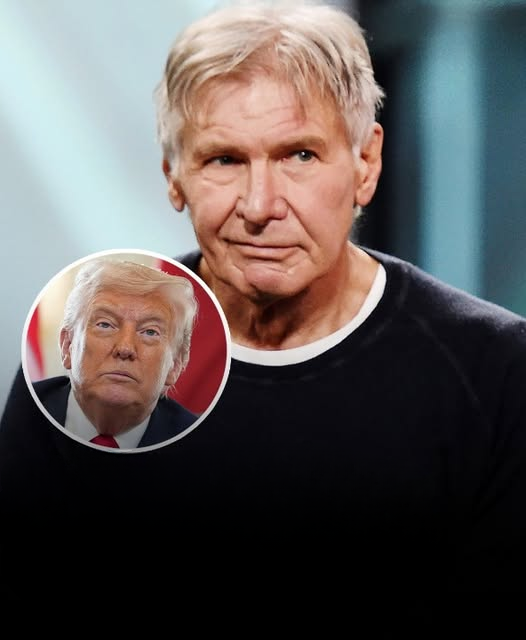At 83, Harrison Ford is a cinematic icon whose legacy is etched into generations of pop culture. He is Han Solo, Indiana Jones, Rick Deckard — names that conjure adventure, daring, and imagination. Yet today, Ford speaks not from scripts or film sets, but from decades of lived experience: a life shaped by reflection, frustration, and an urgent concern for the planet he believes is in peril.
Recently, Ford made headlines for one of his most candid critiques of Donald Trump’s climate policies. “It scares the s**t out of me,” he said, describing a government “guided by whims and ignorance instead of science and responsibility.” His comments weren’t impulsive; they came from decades of environmental advocacy and witnessing the politicization of science. “Ignoring facts for short-term gain is betrayal,” he said, “betrayal of the planet and future generations.”
For more than thirty years, Ford has actively worked on conservation. As Vice Chair of Conservation International, he has partnered with scientists, policymakers, and indigenous communities to protect rainforests, oceans, and biodiversity. He regularly attends climate summits, lending his influence to sustainable initiatives.
In recent years, however, his tone has shifted from advocacy to alarm. “We’re past polite discussion,” he warned. “Wildfires, floods, melting ice caps — happening before our eyes. And some leaders act as if none of it matters.”
Ford’s frustration isn’t theater; it’s disbelief that basic science could still be questioned. “You can debate taxes or trade policy,” he said, “but you cannot argue with physics. You cannot rewrite the laws of nature to suit your agenda.” He’s watched environmental protections dismantled, regulations rolled back, and scientific voices silenced, calling it “historically criminal.” “You can’t deregulate your way out of extinction,” he added.
Yet even amid the urgency, Ford maintains hope. “Humanity has faced immense challenges before. We’ve adapted, rebuilt, invented. We still can fix this — but first, we must admit we are the problem.” His message isn’t meant to terrify but to awaken: to remind individuals that the Earth is a home, not a resource to exploit.
Ford’s connection to nature is deeply personal. As a child, he once encountered a red fox in the woods behind his home. The quiet encounter taught him an essential truth: “We’re not separate from nature. We are part of it. Pretending otherwise is the root of every mistake we’ve made.” This philosophy has guided his life — from quietly funding conservation projects and narrating educational films to lending his voice to global campaigns. The same gravelly voice that thrilled audiences with heroic lines now urges protection of the planet.
Asked why he continues to speak out at his age, he is unwavering: “I have children and grandchildren. I don’t want to tell them I did nothing.” Ford notes that today’s activism often gets reduced to fleeting social media outrage, yet he focuses on meaningful action. “Change doesn’t come from hashtags,” he said. “It comes from the choices we make: the food we eat, the vehicles we drive, the leaders we elect. No one can opt out.”
Away from the spotlight, Ford retreats to his Wyoming ranch, surrounded by mountains, forests, and wildlife — the very places he strives to protect. Flying over the terrain, he sees both the beauty and the damage humans have inflicted.
Ford is aware some dismiss his views as “Hollywood preaching,” but he is unmoved. “I speak not as an actor, but as a human being who wants clean air and a thriving next generation.” Despite urgency and frustration, his message is rooted in belief: we built this mess, and we can repair it — but only if we embrace our role as caretakers, not consumers.
Ford’s voice carries the weight of someone who has witnessed both human triumph and failure. Beneath his frustration lies conviction, not despair. He speaks because he believes that decisive action, honesty, and care can still alter the course of history — and that it is not yet too late.
